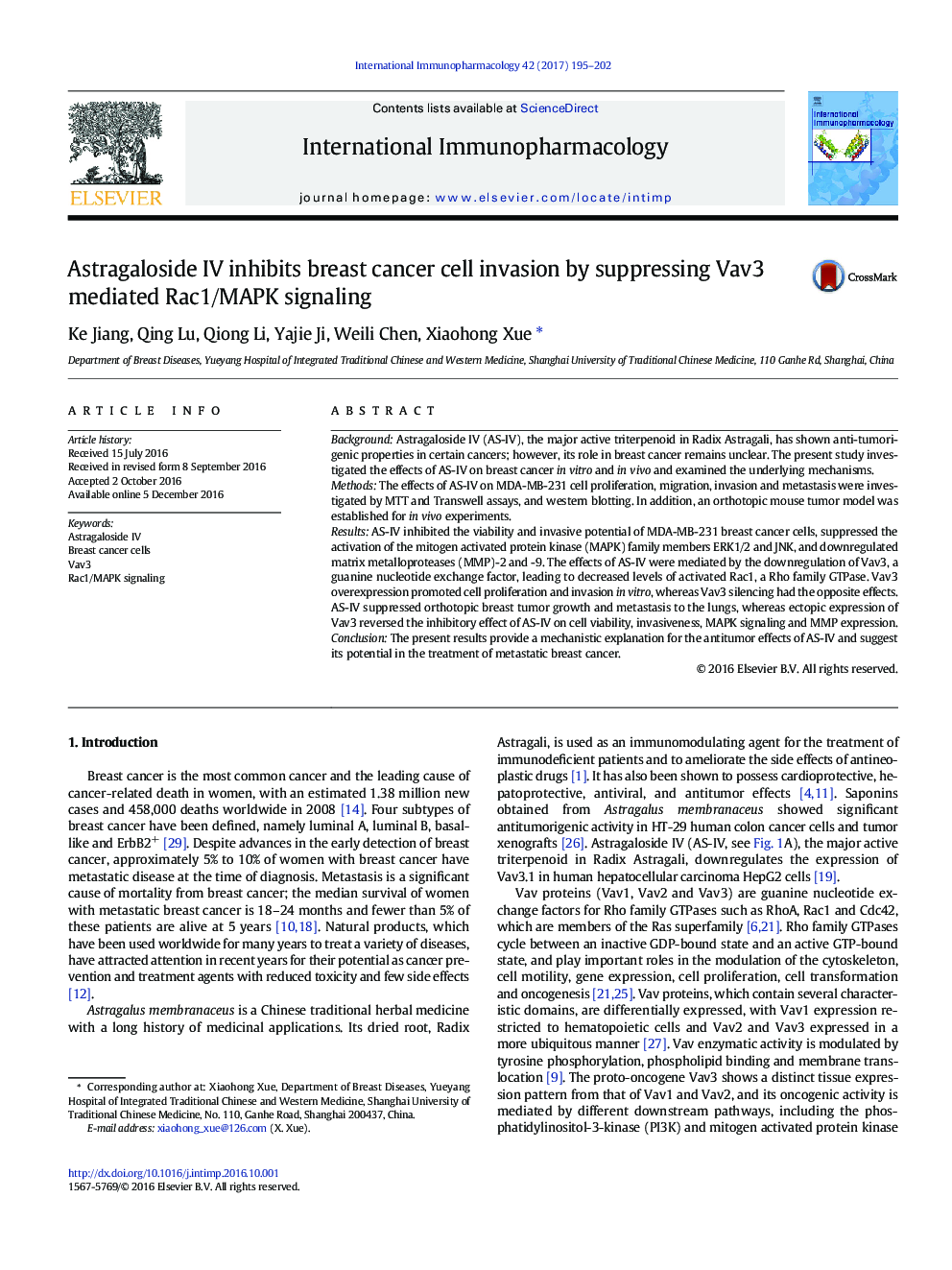| Article ID | Journal | Published Year | Pages | File Type |
|---|---|---|---|---|
| 5555547 | International Immunopharmacology | 2017 | 8 Pages |
â¢AS-IV inhibits the viability and invasive potential of breast cancer cells.â¢AS-IV inhibits Vav3 expression and Rac1/MAPK activation.â¢AS-IV treatment inhibits tumor growth and metastasis in vivo.
BackgroundAstragaloside IV (AS-IV), the major active triterpenoid in Radix Astragali, has shown anti-tumorigenic properties in certain cancers; however, its role in breast cancer remains unclear. The present study investigated the effects of AS-IV on breast cancer in vitro and in vivo and examined the underlying mechanisms.MethodsThe effects of AS-IV on MDA-MB-231 cell proliferation, migration, invasion and metastasis were investigated by MTT and Transwell assays, and western blotting. In addition, an orthotopic mouse tumor model was established for in vivo experiments.ResultsAS-IV inhibited the viability and invasive potential of MDA-MB-231 breast cancer cells, suppressed the activation of the mitogen activated protein kinase (MAPK) family members ERK1/2 and JNK, and downregulated matrix metalloproteases (MMP)-2 and -9. The effects of AS-IV were mediated by the downregulation of Vav3, a guanine nucleotide exchange factor, leading to decreased levels of activated Rac1, a Rho family GTPase. Vav3 overexpression promoted cell proliferation and invasion in vitro, whereas Vav3 silencing had the opposite effects. AS-IV suppressed orthotopic breast tumor growth and metastasis to the lungs, whereas ectopic expression of Vav3 reversed the inhibitory effect of AS-IV on cell viability, invasiveness, MAPK signaling and MMP expression.ConclusionThe present results provide a mechanistic explanation for the antitumor effects of AS-IV and suggest its potential in the treatment of metastatic breast cancer.
